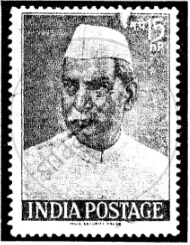Advertisements
Advertisements
प्रश्न
Explain the six Freedoms guaranteed under Article 19 of the Constitution of India.
उत्तर
The six Freedoms guaranteed under Article 19 of the Constitution are explained below:
- Freedom of Speech and Expression:
This right helps a person to discover the truth. It enables us to participate in public activities “freedom of expression” also incorporates the freedom of the press. Where there is a question of interests of public order, the security of the State, decency or morality, their reasonable restrictions on this right can be imposed, - Freedom to assemble peaceably and without Arms:
The right of assembly is to be exercised peaceably and without arms as per the limitations concerned. However, the State is liable to impose reasonable restrictions in the interests ‘of public order or national integrity. - Freedom to form Associations and Unions:
The .citizens have the freedom to form associations or unions. The State may impose reasonable restrictions on this freedom in the interests of morality public order and the sovereignty and integrity of India. - Right to move freely: The citizens have the right to go anywhere in the territory of India. However, restrictions may be imposed oh the movement and travelling, so as to control an epidemic.
- Freedom to reside and settle in any part of India: Reasonable restrictions are imposed on this freedom in the interests of the general public or for the protection of the interests of the Scheduled Tribes.
- Right to practise any profession or to carry on any Occupation: Though this right allows all citizens to practise any profession or carry on any occupation, trade or business, yet the State may impose reasonable restrictions on this right in the interests of the general public. To carry on dangerous or immoral business is not allowed. Professional or technical qualification may be prescribed for practising any profession or carrying on the trade.
संबंधित प्रश्न
Tick mark (✓) the correct statement or (X) if it is wrong.
The constitution is the supreme law of the land.
Match the following:
| Column A | Column B |
| 1. 1946 | (a) India became independent. |
| 2. 1947 | (b) The Constitution of India was passed. |
| 3. 1949 | (c) The first meeting of the Constituent Assembly was held. |
| 4. 1950 | (d) The Constitution of India was amended. |
| 5. 1976 | (e) India became a sovereign, democratic, Republic. |
Answer the following question briefly:
Why did the farmers of the Constitution decide to promote fraternity among the people of India?
This is a picture of the Chairman of the Constituent Assembly of India which drafted the Indian Constitution.

When did the Constitution come into force?
What is the opposite of a Secular State? Name any one State that is not Secular.
Mention the words introduced in the Preamble by the Constitution Forty-second Amendment Act, 1976.
Explain the significance of the term ‘Sovereign’.
Why was the word ‘SECULAR’, incorporated in the Preamble?
With reference to the making of the Indian Constitution explain the following:
How was the membership of the Constituent Assembly reduced as a result of the partition of the country?
With reference to the Preamble of the Indian Constitution, answer the following question:
What is the significance of the words, ‘Sovereign Socialist Democratic Republic’ as given in the Preamble?
